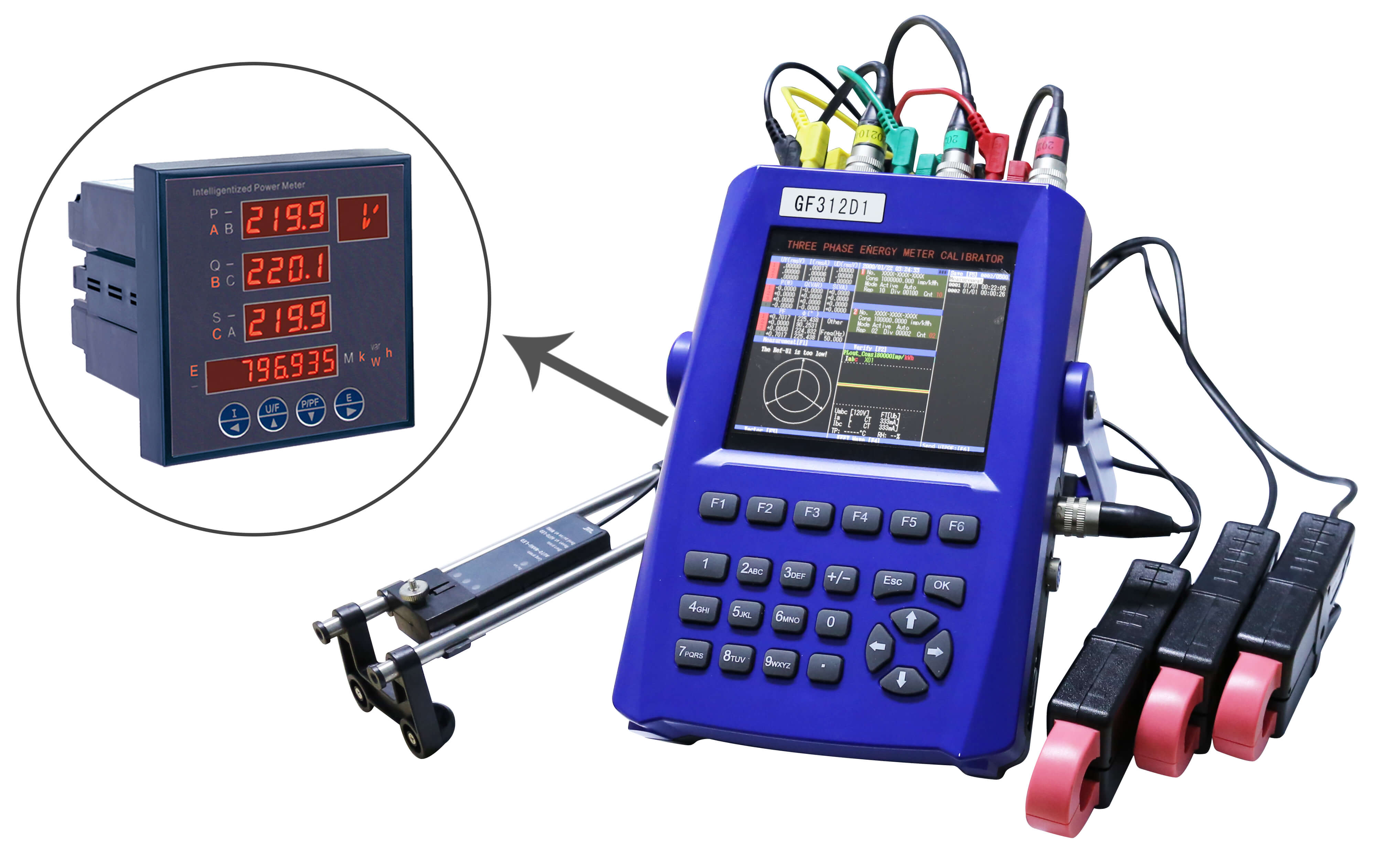 >Support>Technical library>Energy Meter calibration Methods
>Support>Technical library>Energy Meter calibration Methods
Energy Meter calibration Methods02-19, 2024

Definition:Energy Meter calibration refers to the process of verifying the measurement accuracy and working status of the Energy Meter through the actual test. This process involves testing, comparing and judging the energy meter to determine the accuracy and reliability of its measurement results. The main purpose of electricity meter verification is to ensure the accuracy of electricity meters, so as to protect the interests of consumers, prevent fraud in electricity charges, and ensure the economic interests of electricity enterprises and institutions.
Energy Meter calibration usually includes measurement error test, phase test, zero drift test and temperature characteristic test. There are two main methods of calibration, one is the use of automatic calibration of energy meter calibration equipment, the other is manually operated calibration tools, such as ammeter, voltmeter, insulation resistance meter, meter and so on.
The steps for verifying an energy meter are as follows:
1.Check instruments and equipment: Before verifying, check whether the required instruments and equipment are working properly, including standard sources, multimeters, and power meters. Select the right standard source: The standard source is one of the essential equipment for verifying the energy meter. When selecting a standard source, it is necessary to consider whether its accuracy and range meet the requirements.
2.Connect the test instrument: Connect the energy meter to the standard source, multimeter, power meter and other test instruments to ensure that the connection is correct and reliable. Test: According to the standard requirements and the actual situation, electrical parameters, phase Angle, mechanical timer, pulse output test.
3.Record test results: Record test results in a table for subsequent analysis and processing.
4.Analysis of test results: According to the test results, analyze the performance and error of the energy meter to determine whether it meets the requirements.
5.Adjustment and repair: If the energy meter has errors or faults, it needs to be adjusted and repaired to ensure its normal operation.
6.Store the result: the record of the check table is saved inside the machine, and the stored data can be read out or deleted by connecting to a PC.
It should be noted that when verifying the energy meter, it is necessary to comply with the relevant standards and regulations, and follow the correct steps to ensure the accuracy and reliability of the results. At the same time, it is also necessary to maintain safety awareness and pay attention to operational safety and instrument safety.
GFUVE GROUP meter test equipment are especially designed for testing of energy meter installations on-site or in the laboratory. Its functionality meets all requirements for comprehensive meter testing. We distinguish between reference meters/ meter calibrator, standard power sources, portable meter test equipment and energy meter test bench. its accuracy is from 0.2% up to 0.02%. Meeting standards IEC60736 & ANSI C12.1-2014. current range from 1mA to 120A and voltage range from 0.01V to 500V. Meeting ISO17025 lab standard requirement.Single- and three-phase portable test devices over the complete range of accuracy classes used for on-site testing or in laboratories. Light in weight and with user friendly keyboard layouts and menu-driven software, the devices are easy to operate and your solid partner for on-site testing of different kind of meters.
With its innovative, effective and customized test systems, GFUVE meets the challenges in the smart energy world and the changing requirements of the customers. Meters measured and calibrated with high precision portables and systems, protect utilities and customers against non-technical losses, loss of revenue or overbilling.
GFUVE´s stationary and portable test equipment are available over the complete range of accuracy classes and cover all legal metro-logical test requirements for simple meters, high precision multi-function meters, smart meters and reference standards.
Energy Meter calibration is a necessary condition to ensure the fairness, accuracy and legality of electricity consumption, and also an important means to ensure the economic interests of enterprises and institutions with electricity consumption. If the electricity meter is not verified or unqualified, it will bring serious losses to the consumers and the power supply enterprises and institutions, and destroy the order of the electricity market.